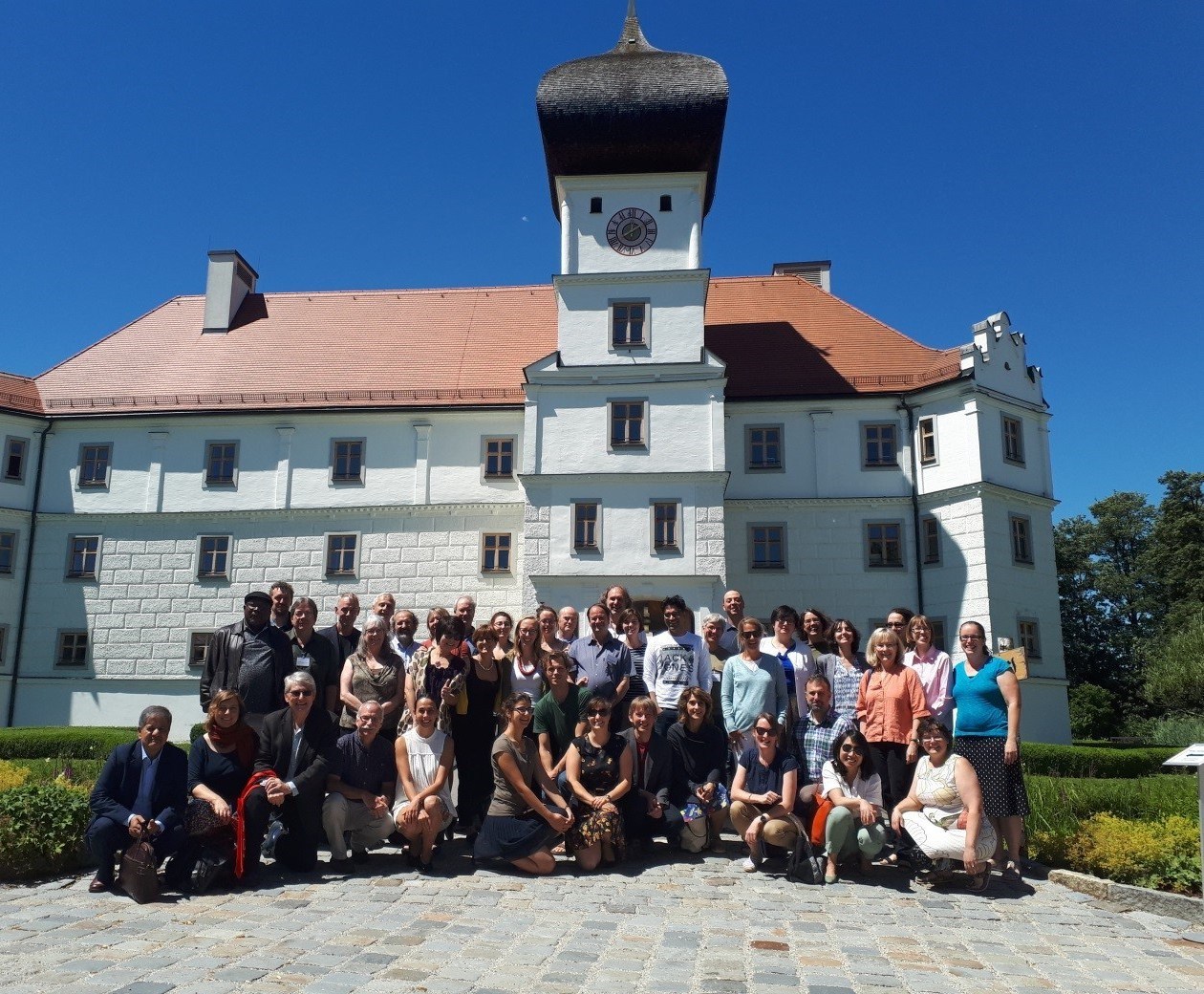
30 June–2 July 2018, Hohenkammer and Rachel Carson Center (Germany)
Environmental Humanities (EH) is a new and innovative field of study that engages interdisciplinary scholarship from across the humanities spectrum to study the relationship between humans and the physical world they inhabit. In summer 2018, the Rachel Carson Center convened a meeting of leaders in Environmental Humanities—those who have set up networks or taken steps to institutionalize the subject at their home universities—from across the globe to discuss best practice and find ways of cooperating and sharing expertise in our shared moment of planetary crisis. The summit was also attended by eleven international young scholars who are forging their academic careers in this new field.
At the summit, over two days of discussion in diverse ways and in many voices, participants acknowledged the following four principles for scholars in the Environmental Humanities:
THE IMPORTANCE OF COMMUNITY
As pioneers in our new and still-emergent field and with precarious university structures, we are especially dependent on our community of like-minded thinkers. What binds us together are our shared concerns, which arise out of the entanglement of our personal trajectories and experiences with our scholarly research. We care viscerally, emotionally, and politically about the topics we work on and feel a deep sense of responsibility to engage as global citizens. Our community is intergenerational and international and we need ensure it is resilient across space and across time.
DISCIPLINARITY ACROSS GENERATIONS
Environmental Humanities is a new assemblage of interdisciplinary approaches and tools. Its diversity is invigorating, but we are all engaged in a process of questioning and changing existing paradigms, and this can create conflict with previous generations of scholars and uncertainty for young scholars who do not yet have established paths to tread. EH scholars need resources of humility, respect, and trust to work with scholars from different disciplines and from different generations.
WORKING WITH PARTNERS OUTSIDE ACADEMIA
Understanding interlinked environmental issues requires a holistic, networked approach: creating a broad front in Environmental Humanities that can enable cultural shifts in the wider world requires us to forge alliances with partners outside of academia. We want to cultivate relations with the GLAM (galleries, libraries, archives, museums) sector, creative and media industries, community and activist groups, local government and political parties, private sector corporations/foundations, schoolteachers and children, religious organizations, and farms and botanical gardens; and also take opportunities to collaborate across disciplines and hierarchies within our own institutions.
DEVELOPING DIVERSE SKILLS
The EH toolbox needs skills that facilitate interdisciplinary project work and outreach—digital and multimedia literacy, filmmaking, ethnographic methods, intercultural skills, fundraising and budget management—and also build our capacities to listen well, to tell stories engagingly, to speak multiple languages, and embrace diversity in all its forms. EH needs to do as much as possible to break out of its Euro-American comfort zone, to learn new languages and reach new places, to become truly diverse and inclusive.
To learn more about the event, and for access to the full report and participant list, click here .
Courtesy of Rachel Carson Center posted November 21, 2018
Fatal error: Uncaught Error: Call to undefined function hit_counter() in C:\Apache24\htdocs\footer.php:54 Stack trace: #0 C:\Apache24\htdocs\event\EH.php(117): include() #1 {main} thrown in C:\Apache24\htdocs\footer.php on line 54


